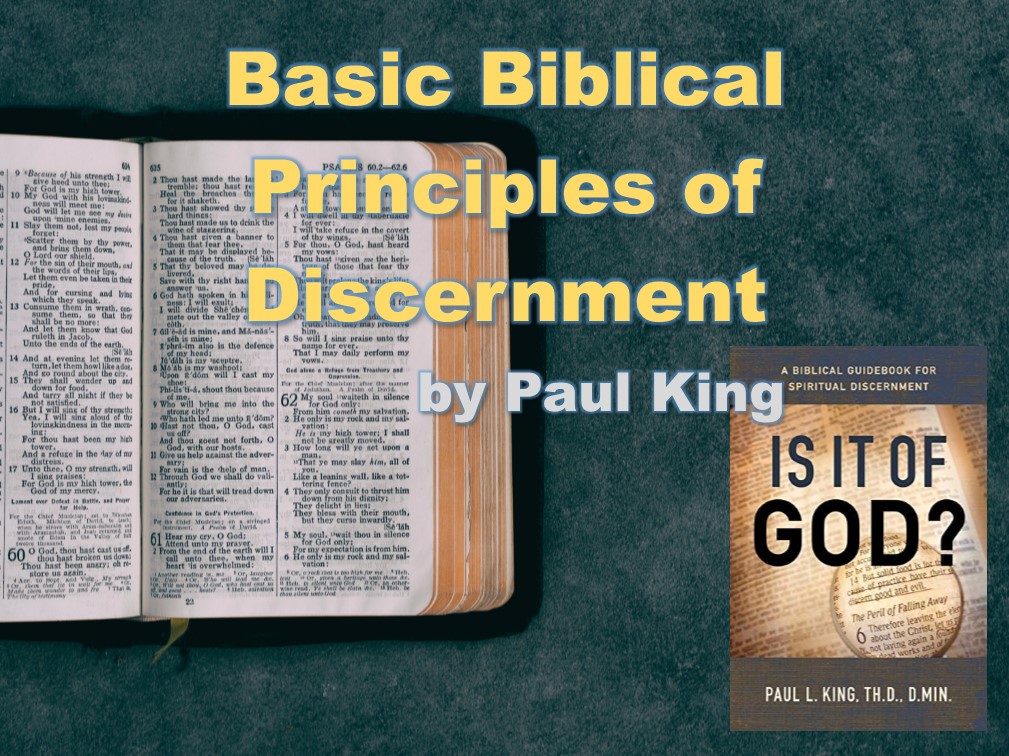Basic Biblical Principles of Discernment
 The biblical principles of discernment are based on the seven foundation blocks of the previous chapter: Discernment is God-given, Christ-centered, Spirit-guided, prayer-saturated, Scripture-based, corporately-confirmed, divinely-balanced. Eight biblical principles of discernment, based on the acronym DISCERNS, include the following:
The biblical principles of discernment are based on the seven foundation blocks of the previous chapter: Discernment is God-given, Christ-centered, Spirit-guided, prayer-saturated, Scripture-based, corporately-confirmed, divinely-balanced. Eight biblical principles of discernment, based on the acronym DISCERNS, include the following:

Image: Bourne Baljit
- Discover Biblical Precedent.
- Investigate for Scriptural Harmony.
- Scrutinize for Sound Doctrine.
- Confirm with Experience.
- Examine the Fruit.
- Receive Supernatural Discernment.
- Note Examples and Lessons from the Past.
- Sift and Weigh for Divine Equilibrium.
As we look at these principles, to make it simple, spiritual discernment is a bit like driving a car. We need to learn when to press down the accelerator, apply the brakes, or continue to move forward with alertness and caution. The illustration of approaching a traffic light while driving helps to picture the process of discernment: Green Light means Go for discernment. Red Light means Stop; go no farther. Yellow light means slow down and get ready to stop. A blinking yellow light is a modified green light when crossing some busy intersections, meaning continue to proceed with caution, looking both ways in case there are crosswinds or someone else wasn’t paying attention to the lights.[i]
Discernment Principle 1: Discover Biblical Precedent
Is the teaching, practice, or manifestation clearly found in Scripture? “All Scripture is inspired by God and profitable for teaching, for reproof, for correction, for training in righteousness; so that the man of God may be adequate, equipped for every good work” (2 Tim 3:16-17). Biblical precedent may be demonstrated in one of three ways: 1) Commands—a direct command to do or not to do something (for example, the Ten Commandments); 2) Principles—guidelines for common or normal practice (for instance, most of the proverbs are observation of life truth, not commands); 3) Examples—demonstration through something that is said or done or not said or done (illustrations, real life instances, patterns, experiences). Based on these, we then can ask two questions:
- Do any biblical commands, principles, or examples clearly question or condemn this teaching, practice, or manifestation? This is an automatic red light.
- Do any biblical commands, principles, or examples permit or sanction this teaching, practice, or manifestation? This may be a green light, but it also may be a blinking yellow light that requires looking in all directions for further confirmation.
Category: Biblical Studies, Summer 2019


